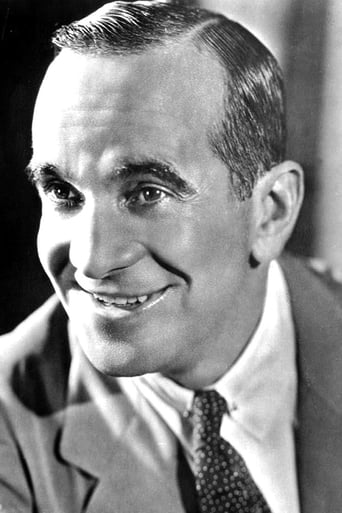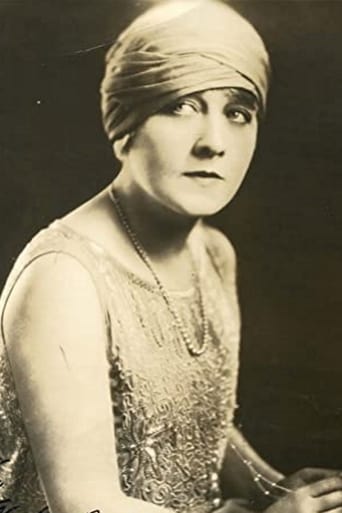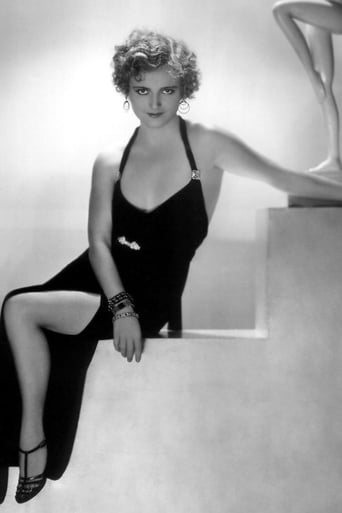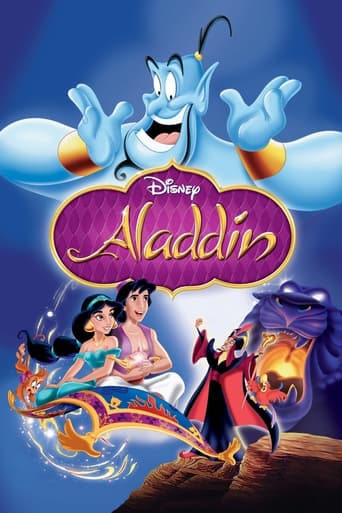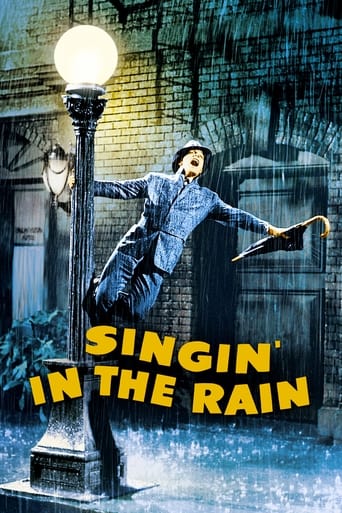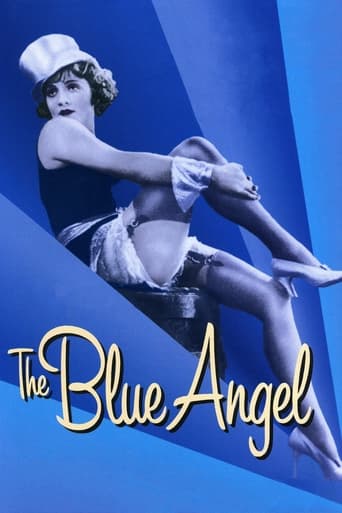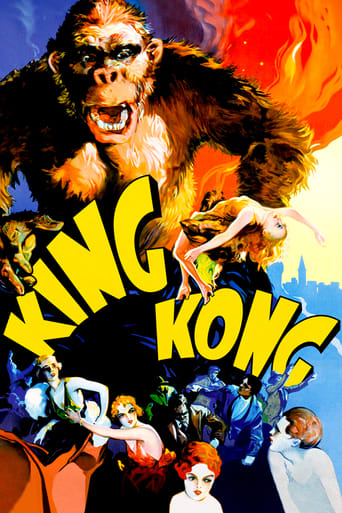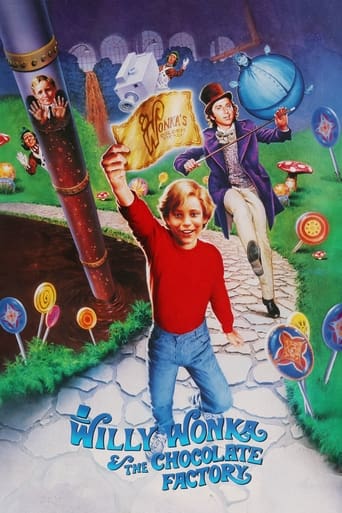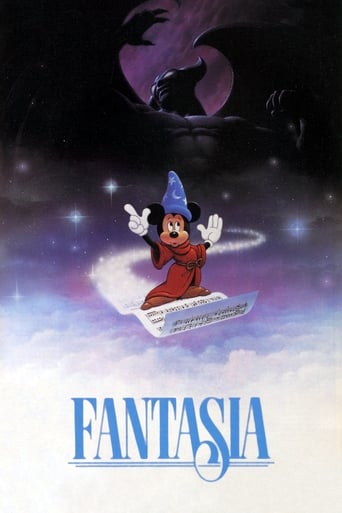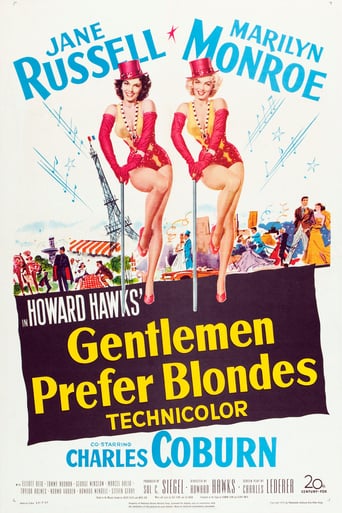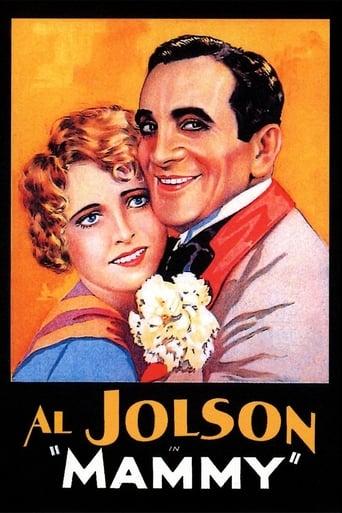

Mammy (1930)
Mammy features Al Jolson as the star of a travelling minstrel show, appearing in a small Southern town. Jolson falls in love with an actress in the troupe (Lois Moran), but she loves another. One of Jolson's fellow minstrels (Lowell Sherman) is shot backstage, and it is assumed thanks to several plot convolutions that Jolson is guilty of the deed.
Watch Trailer
Cast


Similar titles
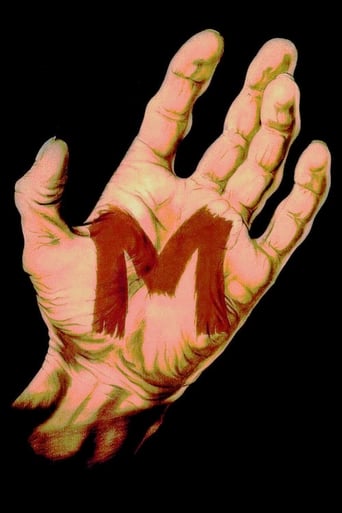
Reviews
Just watched this on Warner Archive DVD. It also had the trailer for it in which star Al Jolson is "interviewed" by a reporter about his latest picture. I put "interviewed" in quotes because I'm sure that "reporter" was another actor helping plug the picture. Anyway, I enjoyed the story and performances though it's really Jolson's songs-mostly written by Irving Berlin-that help sell the movie on its merits. This version has the restored 2-strip Technicolor sequences that looked pretty good for its age. Some of those scenes had to be accompanied by sepia-toned black and white ones to show them complete which didn't distract me too much. In summary, Mammy-despite some now-politically incorrect stereotypes concerning the blackface sequences-was pretty entertaining.
Good to have this one on a "restored and remastered" Warner Archive DVD, complete with its original "Overture" and its Technicolor sequences (be they a little bit damaged). Most people complain about the attempted restoration of the two Technicolor sequences, but I thought the archives did a remarkably good job here. Where they failed was with the Overture. I anticipated that it would be at least as effective as the stirring music track for Don Juan (1926). But not on your life! These boys have had three years to refine their task, and they come up with something that isn't a quarter as stirring or effective. Fortunately, the sound track of the movie itself is much better, though it too seems to have only half the volume and no more than a quarter of the Barrymore movie's oomph and daring. All the same, it's hard to keep Al Jolson down. Even at his worst (some of the end-man's corny feeds to the Interlocutor), Jolson is still almost the best thing about Mammy. I say "almost" because Al is actually thoroughly beaten for acting honors by the title lady herself, brilliantly played here by Louise Dresser. Despite the movie's title, her role is actually rather small. But you'll never forget her. Wisely, Curtiz, his cameraman (Barney McGill), his editor (Owen Marks) and his costume designers (Earl Luick and Edward Stevenson) focus all our attention on Louise when she does actually appear. For once in the picture, Jolson feeds her all the dialogue. In all other scenes in which he appears, Jolson is the one who is fed. This is bad, actually, because it makes the plot hard to follow when the victim is given all the close-ups and the perpetrator is almost always observed in long shot and makes virtually no impression at all. Still, you could argue that Mammy is a musical and that the plot doesn't really matter. There's more than a bit of truth in that argument, so don't let the plot worry you. Just sit back and enjoy all the standard Irving Berlin minstrelsy.
If Mammy is remembered for anything it is for providing Al Jolson with one of his biggest song hits, definitely the biggest song hit he had written especially for the screen. Irving Berlin wrote this number for Jolson and he does it three times in his usual bravura style and on two of those occasions without black-face.Al Jolson got his start in minstrel shows which were still popular at the turn of the 20th century. He's Al Fuller in this show, lead singer in this troupe and a man with a case of unrequited love for the owner of the show. From there springs the plot.It's unfortunate for Jolson's current reputation that he did not abandon the black-face which was a carryover from his minstrel days. It's considered offensive now and rightly so. But listen to him sing Let Me Sing and I'm Happy and the rest of the score and you're hearing one of the great song stylists ever.Irving Berlin wrote some original material for this film which was interpolated with some other standards. It is also good to hear Jolson do two of his comedy numbers, Who Paid the Rent for Mrs. Rip Van Winkle and Why Do They All Take the Night Boat to Albany. It's his ballads that he's remembered for today, but these numbers give you an idea of more of the kind of material he did on stage.A lot of people will be rightly offended in seeing Mammy now, but like Bing Crosby's Dixie, it's an interesting piece of cinema history.
I saw today the restored version of "Mammy," restored in that the two colour sequences have been put back in. (Some areas had to use sepia-tinted bridging sequences.) I'm no fan of Jolson, but the movie did keep my interest, the presentation was good, and Al here is somewhat restrained, all of which added up to a surprisingly good time. Presentation (including a very good soundtrack) is everything


